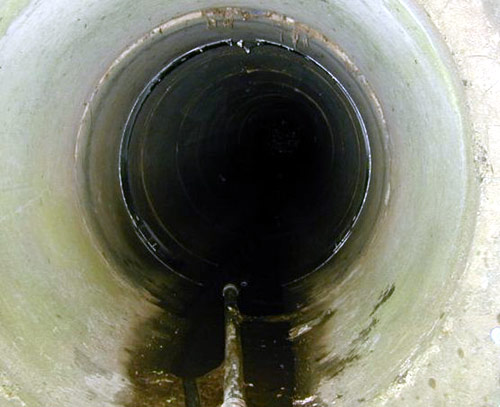UPDATES
Some Fresh Air on a Smelly Problem
February 9, 2012 | Ahron Shapiro

It’s time to clear the air on an issue which has been the source of a misinformation campaign for years – Israel’s environmental record in the West Bank.
While of course the record is not perfect and liable to factually-based and fair criticism, much of the actual comment on the subject has been neither – employing untruths, half-truths and partial truths, while ignoring the realities that make it impossible for Israel to simply wave magic wand and transform the area’s environmental situation into an ideal state at the same time as having to deal with the ongoing Palestinian-Israel conflict, including Palestinian refusal to act cooperatively with Israeli authorities even when it is to their own benefit to do so.
Take the issue of sewage, where Israel has been accused by Palestinian media sources of creating “an environmental calamity” by not allowing new sewage plants.
Now, the Jerusalem Post has reported that all but one of 22 Palestinian villages have refused to connect to a sewage line installed by Israel.
“That’s a testament to the fact that we are doing everything we can to prevent pollution in Judea and Samaria, but nevertheless, the Palestinians refuse to cooperate,” Environmental Protection Minister Gilad Erdan told The Jerusalem Post during the tour.
Although planned about 15 years ago, the pipeline was only constructed about eight years ago, and a decade ago sewage from the settlements as well flowed directly into the stream, according to Shomron Environmental Association director Itzik Meir.
Erdan expressed hope that donor countries would agree to only continue giving the villages financial support if they agree to connect to the sewage pipeline. Meanwhile, he also said he hoped that the relationship between the local Palestinian and Israeli communities would improve, though he certainly has doubts about this matter.
“Hopefully I will be surprised,” he said.
“It’s important for me to reveal whether they’re making political use of water,” Erdan said.
The spurious depiction of Israel as a serial polluter and environmental abuser of West Bank water resources has been promoted by several writers over the years including Johann Hari, former columnist for the UK’s Independent, who gained notoriety when he claimed that Israel was “flinging its filth at a cowering Palestinian population” in a 2008 piece republished here in Australia in the Canberra Times.
Hari, you may remember, was exposed last year for repeatedly violating journalistic ethics and fabricating stories, leading to his eventual departure from the paper. <>
In reality, Israel has been making a steady and concerted effort to improve environmental conditions in the West Bank, despite suffering occasional setbacks, but is getting little cooperation from the Palestinians.
Last year the High Court issued an injunction preventing the opening of a sewage treatment plant for the settlement of Ofra in Samaria, concluding that it had been erroneously built on private Palestinian land.
In that case, too, Israel had offered to hook up a neighbouring Palestinian village to the plant to improve the environment for all, but the Palestinians refused the offer.
Israel has promised to continue to try to work towards an acceptable compromise.
According to statistics cited by the Israeli environmental advocacy website Green Prophet, 90% of Palestinian waste water is not treated and only 20% of Palestinian homes are connected to sewerage systems.
Ahron Shapiro
Tags: Israel





